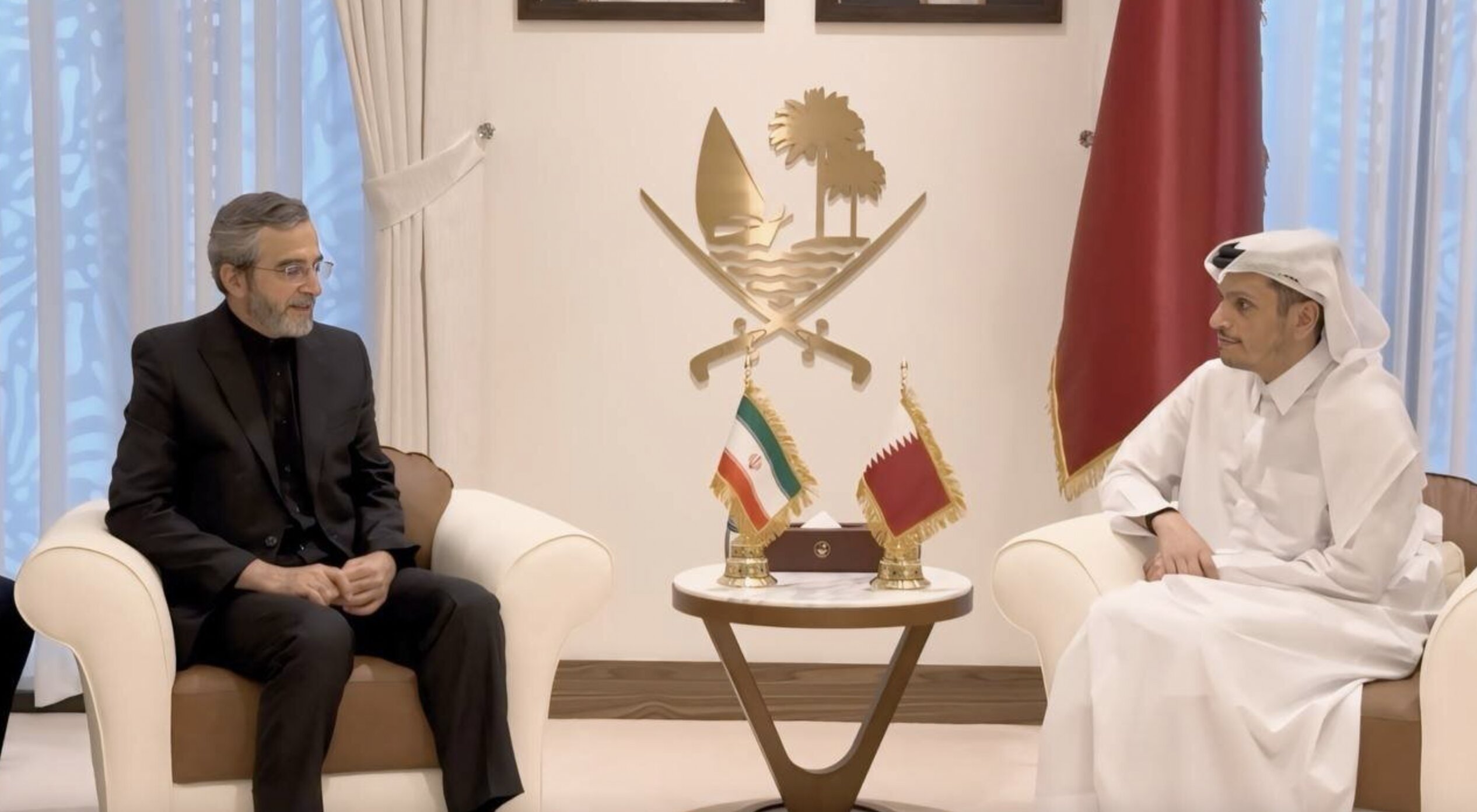The United Nations Security Council held an emergency session on Wednesday evening, where members condemned the assassination but Israel’s top allies, the United States and the United Kingdom, blamed Iran for “destabilising” the region.
Qatar and Iran discussed the “implications” of the assassination of Hamas political chief Ismail Haniyeh on Wednesday, as Tehran vows to retaliate for the killing of the top Palestinian official inside its territories.
The discussions between Qatar’s Prime Minister Sheikh Mohammed bin Abdulrahman Al Thani and Iran’s Acting Minister of Foreign Affairs Ali Bagheri Kani took place over the phone on Wednesday in the wake of Haniyeh’s assassination.
“The call dealt with discussing bilateral cooperation between the two sides and the means to enhance them and the implications of the assignation of Head of the Political Bureau of the Palestinian Islamic Resistance Movement (Hamas) Dr. Ismail Haniyeh in the Iranian capital Tehran,” the Qatari foreign ministry said in a readout of the call.
The top Hamas official was assassinated by Israel in the early hours of Wednesday in Tehran, where he had attended the inauguration of Iranian President Masoud Pezeshkian the day before.
Hamas had confirmed Haniyeh’s assassination in a statement, where it said he “was killed in a treacherous Zionist raid on his residence in Tehran.”
The move was met with global outrage, particularly from within the region.
Qatar, a crucial mediator between Israel and Hamas, was particularly concerned over the killing of Haniyeh, which it condemned and described as “a heinous crime, a dangerous escalation and a blatant violation of international and humanitarian law.”
Sheikh Mohammed, who is also Qatar’s foreign minister, separately took to social media to question the Israeli assassination of Haniyeh.
“Political assassinations and continued targeting of civilians in Gaza while talks continue leads us to ask, how can mediation succeed when one party assassinates the negotiator on the other side? Peace needs serious partners and a global stance against the disregard for human life,” he said.
The attack came amid ongoing efforts led by Qatar and Egypt to reach a ceasefire and a captives release deal, with talks facing a prolonged stalemate since the expiration of last year’s truce.
Echoing Qatar, Egypt said the killing of Haniyeh “undercuts the strenuous efforts” made by the mediators to halt the war in the Gaza Strip.
“The coincidence of this regional escalation with the lack of progress in the ceasefire negotiations in Gaza increases the complexity of the situation and indicates the absence of Israeli political will to calm it down,” Egypt’s foreign ministry said in a statement.
Iran’s supreme leader Ali Khamenei was outraged by the escalatory move and vowed to severely punish Israel. Sources also told The New York Times that the supreme leader ordered for Iran to directly strike Israel in retaliation for the killing of Haniyeh.
“The criminal, terrorist Zionist regime martyred our dear guest in our territory and has caused our grief, but it has also prepared the ground for a severe punishment,” Khamenei said on X.
UNSC holds urgent meeting
The United Nations Security Council held an emergency session on Wednesday evening, where the members condemned Haniyeh’s assassination, whereas Israel’s top allies, the United States and the United Kingdom, blamed Iran for “destabilising” the region.
The session took place at Iran’s request, with its mission to the UN saying that it will respond to the assassination.
“The response to an assassination will indeed be special operations—harder and intended to instill deep regret in the perpetrator,” the mission said on X.
Iran’s UN Ambassador, Amir Saeid Iravani, stressed that the U.S. cannot be absolved of responsibility given that it is Israel’s main backer. He described the crime as a violation of international law and the UN Charter.
“This crime is not isolated but part of a broader pattern of aggressive actions and policies by Israel against other countries in the region,” he said.
Palestine’s Deputy Permanent Representative to the UN, Fida Abdel Latif, highlighted Israel’s immunity from accountability.
“Israel continues to violate international law and commit genocide because it feels immune from accountability,” she said.
The assassination of Haniyeh is only expected to have serious implications, as Israel carried it out on Iranian soil amid an already tense regional situation.
It came after Israel launched a deadly attack on Beirut’s southern suburbs on Tuesday evening, where it killed senior Hezbollah commander Fuad Shukr, a move that has raised further concerns over the region’s security.
The death toll from the attack increased to six by Thursday, with two children being among the victims.
Speaking at the emergency session at the UNSC, Lebanon’s Acting Permanent Representative to the UN, Hadi Hashem, said the Israeli attack represented another dangerous development.
He noted that the assassination of Haniyeh after the attack in Beirut confirmed its intention to “ignite” the regional situation.
Cross-border attacks between Israel and Hezbollah were triggered by the war in Gaza on October 7, raising concerns over an all-out regional war. Hezbollah repeatedly stressed that it would stop fighting if a ceasefire is reached in Gaza.
Israel has killed around 500 people in Lebanon since the beginning of the flare up.
Regional tensions have been on the rise as a result of Israel’s genocidal war in the Gaza Strip, where it killed at least 39,445 people, mainly women and children.
The groups in Lebanon, Syria, Yemen and Iraq—widely known as the “axis of resistance”—have stepped in since the start of the war on October 7 in response to the onslaught in the besieged enclave.







